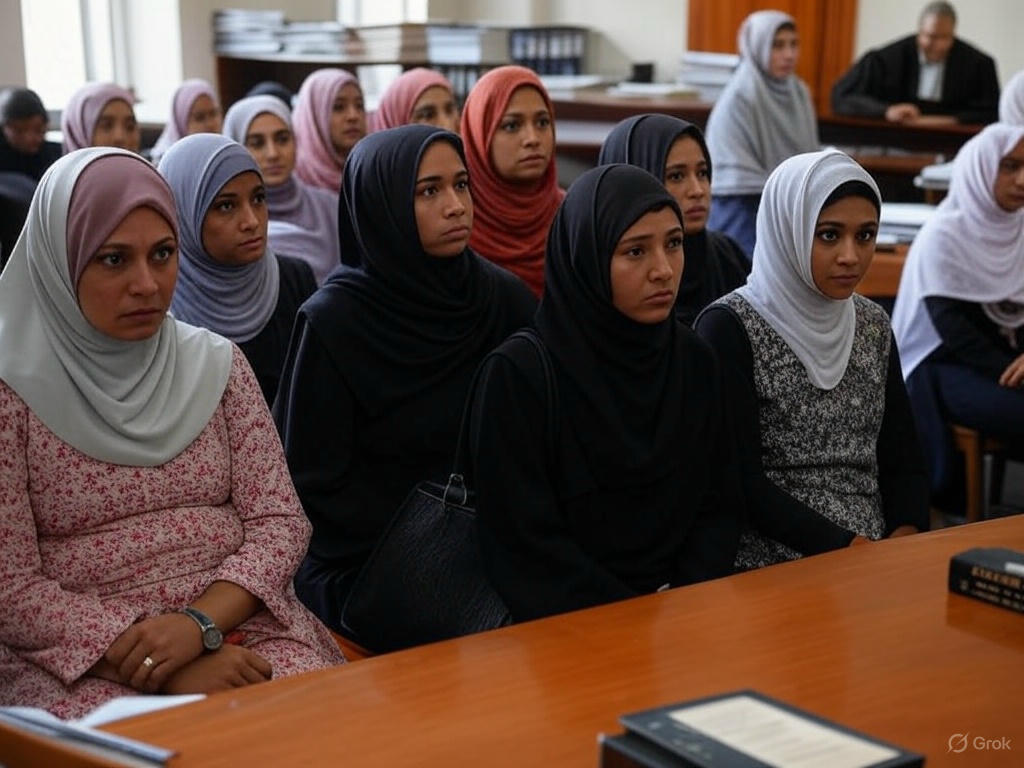Karnataka Hijab Ban: A Legal Battle Over Religious Rights and Education
Social Issues Social Inequalities and exclusionPosted by NewAdmin on 2025-01-31 08:48:58 |
Share: Facebook | Twitter | Whatsapp | Linkedin Visits: 52

The legal dispute over the hijab ban in Karnataka has been ongoing since early 2022, sparking debates on religious freedom, education rights, and uniformity in schools. The controversy began when a government pre-university college in Udupi barred Muslim students from wearing the hijab on campus. The institution cited state government guidelines emphasizing uniformity among students. When six students protested the decision, they were suspended, leading to a wider debate on religious expression in educational institutions.
In February 2022, the Karnataka government issued an order under the Karnataka Education Act, 1983, prescribing a uniform dress code for all students in state-run institutions. This effectively banned the hijab in classrooms, prompting students to challenge the order in the Karnataka High Court. As tensions escalated, the government ordered the temporary closure of schools and colleges. Although the High Court allowed educational institutions to reopen, the hijab ban remained in place while hearings continued.
In March 2022, the Karnataka High Court upheld the ban, ruling that the hijab was not an "essential religious practice" under Islam and, therefore, did not qualify for constitutional protection. The court further stated that the ban did not violate students' freedom of speech or expression, as maintaining discipline in educational institutions was a reasonable restriction. On the same day, the All India Muslim Personal Law Board filed an appeal against the verdict in the Supreme Court.
Despite the urgent nature of the case, the Supreme Court did not schedule hearings for nearly five months. The delay prompted repeated pleas from petitioners’ lawyers, particularly in light of upcoming board exams. When the case was finally listed before a two-judge bench in August 2022, the petitioners requested additional time to prepare, and hearings officially commenced in September. Arguments in the case focused on constitutional rights, including equality, religious freedom, and education, as well as whether the case should be referred to a larger constitutional bench.
In October 2022, the Supreme Court delivered a split verdict. Justice Hemant Gupta upheld the hijab ban, asserting that it applied equally to all students, did not infringe upon religious rights, and was a reasonable restriction to maintain discipline in secular educational institutions. In contrast, Justice Sudhanshu Dhulia ruled against the ban, arguing that it hindered access to education, particularly for Muslim girls, and violated the right to religious expression. He emphasized that personal religious beliefs should be accommodated in schools as long as they are sincere.
With the split verdict, the case now awaits fresh hearings before a larger Supreme Court bench. The decision will ultimately shape the intersection of religious expression and education policy in India, with significant implications for constitutional rights and secularism in public institutions.
Search
Categories
Recent News
- Chelsea's Cup Dreams Shattered: Fofana's Emotional Exit
- Kante's Turkish Twist: Fenerbahce Seal the Deal
- Kerala Defies Central Advice on Rice Incentives
- Naked Chaos at Bangalore's Elite Club: A Shocking Incident
- Solar Fury: ISRO's Vigil Against Radio Blackout
- Indian Markets: AI Jitters Halt Rally, IT Stocks Take a Hit
- SEBI's Reformative Push for Market Integrity
- South Africa's Cricket Renaissance: A Squad with Depth
Popular News
- Navigating IPO Market Dynamics Amid Volatility and Regulatory Changes
- Massive Worldwide Microsoft Outage Disrupts Multiple Sectors
- Panjapur Bus Stand to Reshape TNSTC Routes
- తెలుగుదేశం పార్టీ - పేదరికాన్ని నిర్మూలించడంలో వాగ్దానం
- Universities Embrace Remote Learning Technologies Amidst Ongoing Pandemic